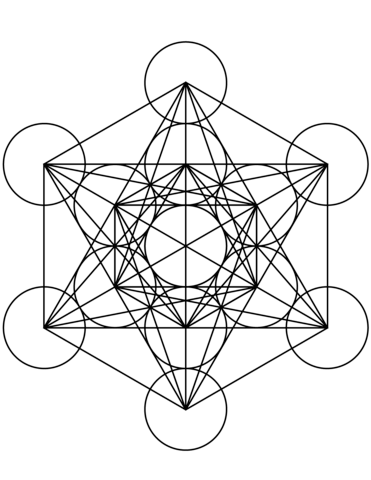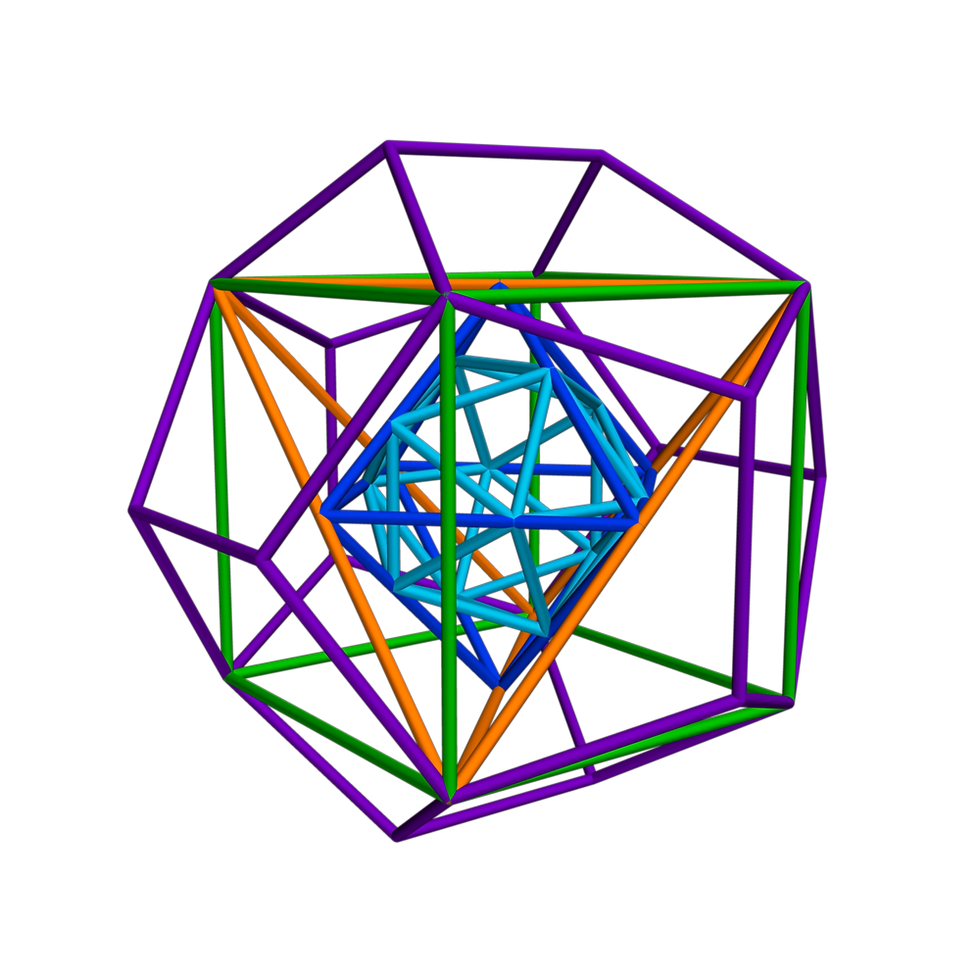Much has already been written about the Platonic solids. They are unique in many ways and are of interest to mathematicians, physical scientists, and spiritual teachers. We are interested in them because they are all nested within Metatron’s Cube. Some of the Platonic solids are easier to see than others. It is a little more challenging to see an octahedron in the image below.

The five Platonic solids are all contained within this two-dimensional image of Metatron's Cube that is shown above. When you attempt to isolate the Platonic solids, they are, of course, also shown in two-dimension, however, they are drawn in three-point perspective. The Platonic solids are all three-dimensional figures.
The next Platonic solid that we are interested in is the Octahedron. The octahedron has eight sides. A regular octahedron has eight faces, and each face is an equilateral triangle. Equilateral triangles have all three sides the same length. You can only see four of the faces in the image below.

Metatron’s cube has at least two regular octahedrons in it. Let’s begin with tracing the larger hexahedron from the two-dimensional image of Metatron’s cube.

Click on the video below which focuses on the larger octahedron to see the animation of it turning into a three- dimensional shape.
The three-dimensional model of Metatron’s cube that we are working to build is shown below. This model is only a partial model since it only shows one example of each of the Platonic solids. It is important because it shows the nesting of the Platonic solids within each other. This nesting allows them to freely rotate within Metatron’s cube. It is the rotation of the Platonic solids that generates the energy within Metatron’s cube.

댓글